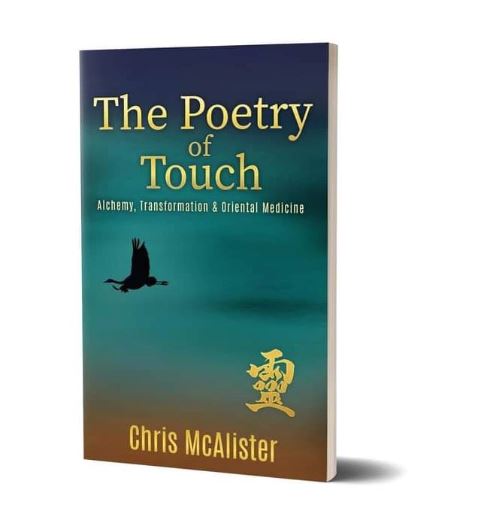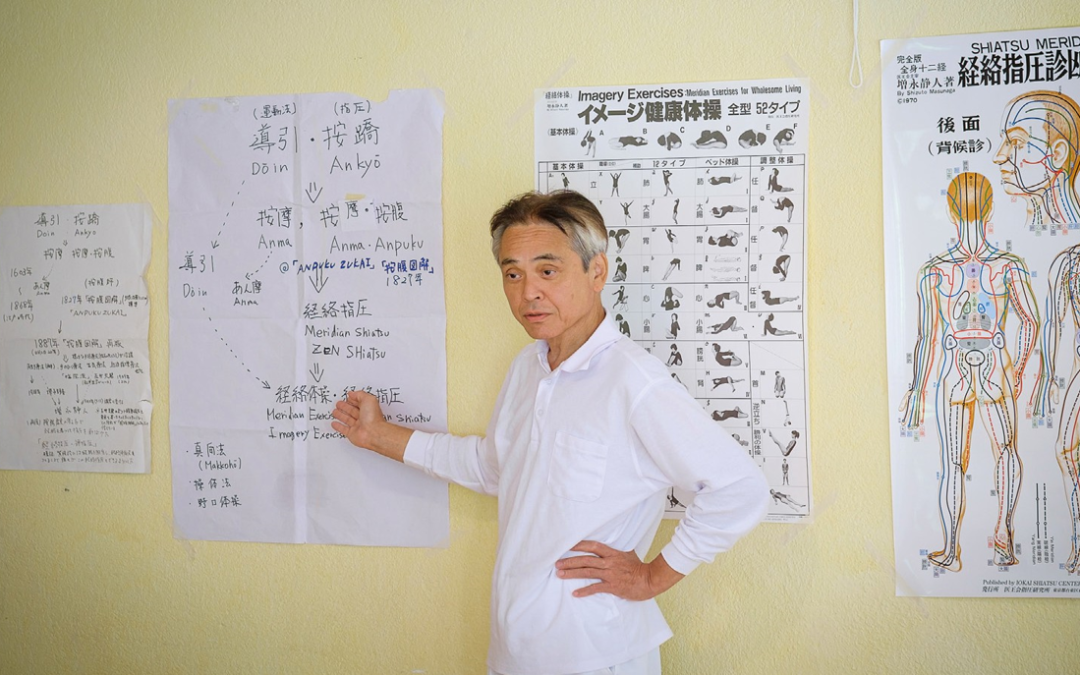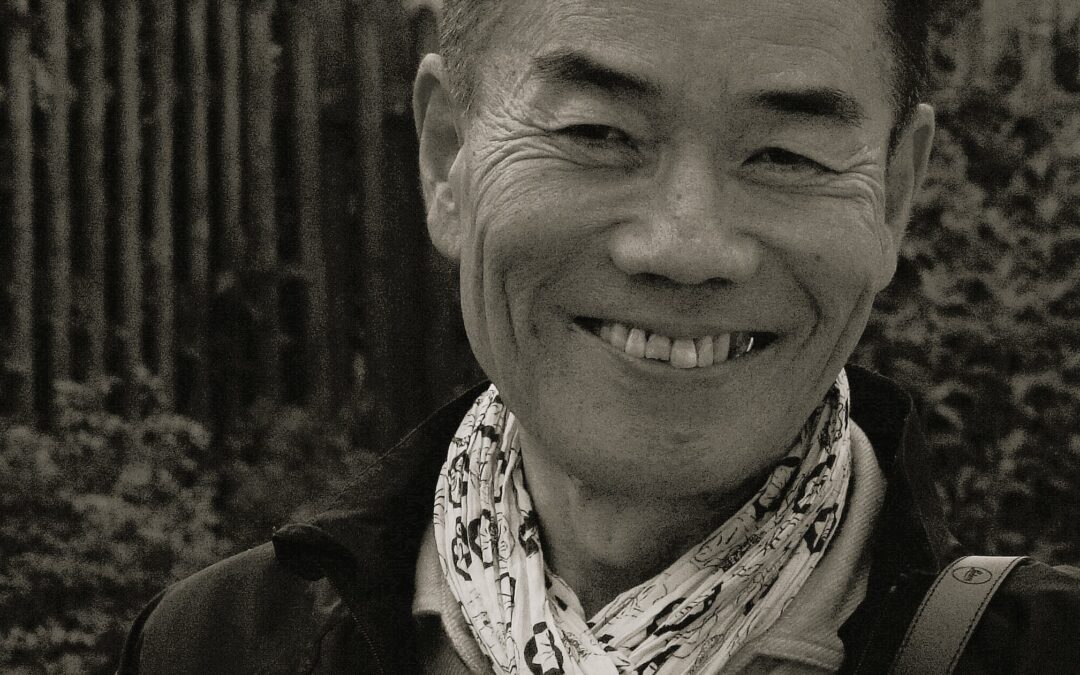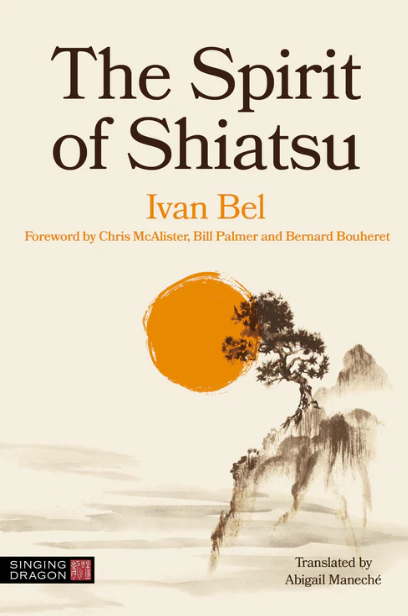In his new book, Chris McAlister, a great scholar of Eastern wisdom, offers us the insight of a man who has spent his whole life exploring the art of touch as a Way of Being. Throughout the pages, he narrates how this medicine transforms the Human Being we are, incarnated between Heaven and Earth.
Drawing on the one hand on his extensive knowledge of Shiatsu, which he has been practising and teaching for over thirty years, and on the other on his profound erudition in Oriental medicine and wisdom, he has written a comprehensive yet easy-to-read work that has the makings of a classic and will undoubtedly serve as a source of inspiration for neophytes and experts alike.
Through anecdotes and personal experiences, he takes the reader along on a subtle and authentic exploration of the Living within us that may be touched. He invites us to embark on a journey of initiation: an inner transformation nourished by poetry and authenticity, and imbued with references to the Classics, in particular the I Ching, the “Book of Changes”, the main source of Chinese philosophy and worldview.
The book’s organisation and content
The Poetry of Touch is divided into seven sections, each divided into chapters.
After first exploring the context in which the reading of this this work is to be placed (section 1), Chris McAlister reconsiders the cornerstones of Eastern philosophy and medicine (section 2) and then sets out on a path (section 3). It is in these first sections in particular that the author addresses themes such as the importance of unearthing traumatic energies buried in the human body and psyche, not unlike the work of an archaeologist. He also develops his vision of the healing spiral, a method of understanding the movements and phases of the healing process.
The journey continues with an exploration of the acupuncture meridians (section 4), which the author approaches though with the eyes of a Westerner who has a perfect grasp of the links between Eastern and Western thought. As he makes clear from the outset:
One of my interests in writing this book is to reaffirm the primordial importance of the meridians in Oriental medicine. While their invisible nature undeniably presents a significant conceptual barrier for some, the meridians have proved to be a guide for myself in my explorations not only with clients, but also in my relationships with the everyday world through the prism of my body.
This fourth section therefore examines a wide range of models and ways of perceiving the meridians, paying a special tribute to the gall bladder meridian, an often overlooked hero , master of breadth and depths.
The following section (section 5) takes the exploration a step further, brining it to new levels of depth by probing the theory of the Four Seas, the architecture of the Extraordinary Vessels and also the model of the Three Treasures, an ancient alchemical tradition which describes the transformation of matter into spirit.
Extremely practical in its approach, the next section (section 6) is for anyone considering a career in complementary and traditional medicine, or who is already involved in one. It includes a discussion of the best practices in terms of health prevention, as well as a checklist of the basic principles of body/energy work for students and more experienced practitioners.
Finally, the book concludes with more metaphysical themes (section 7), such as the cradle of the soul, the numinous or ancestral energy, to name but a few, and invites you to discover others for yourself.
Other reviews
It is such a coherent book that is serves as a source of inspiration, even for experts. […] The Poetry of Touch has the makings of a classic. It is one of the best works ever written around the subject of bodywork and Oriental medicine.
Mike Mandl, author and director of the International Academy for Hara Shiatsu in Vienna
It is a masterpiece that I recommend without reservation. Chris honours the diversity and depth of East Asian medicine, a shining example of the path to mastery.
Stephen Brown, teacher and translator of textes on traditionnal japanese medical arts, notably the series of on Tenpeki Tamaï and Shiatsu Ho.
The Poetry of Touch is the life work of a man immersed in the healing arts of Shiatsu, acupuncture, Qigong and meditation. A man who has gone through his own healing journey, working on mastering his art. […]Chris McAlister captivates you with his wit, insights, devotion and ability to look at ancient concepts with fresh eyes.
Mihael Mamychshvili, RPN, RST. Shiatsu Therapist, creator of the NeuroPath Reset method, founder of the Angel Hands Integrative Centre in Vancouver
The author
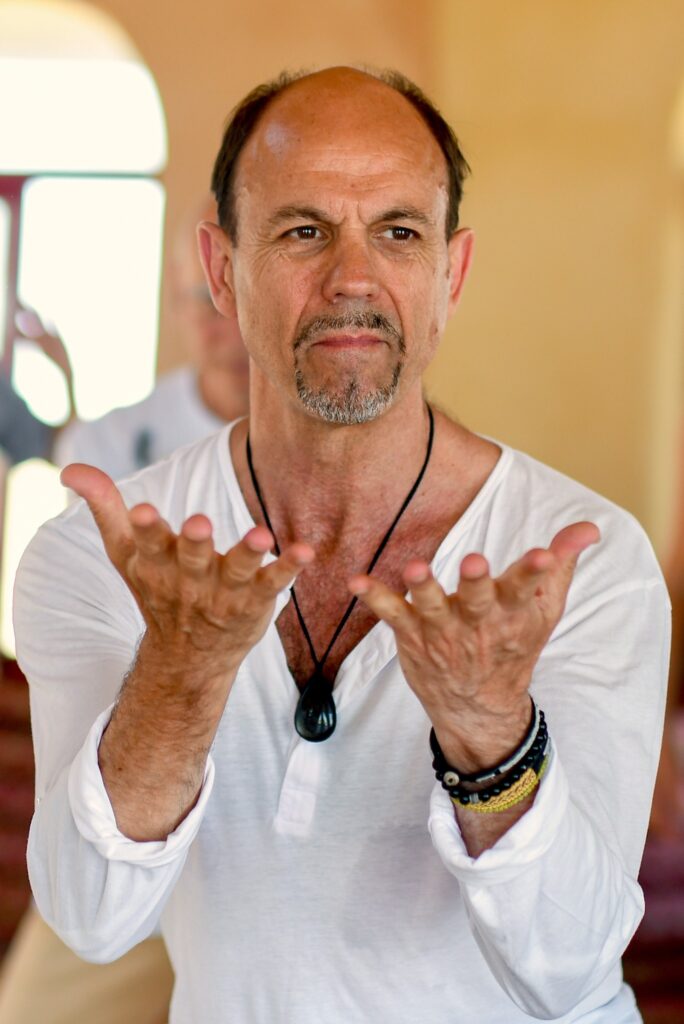
Chris McAlister was born in 1963 and raised in England before he set out to travel around Asia. Between Nepal and Tibet, he explored the vastness of the highlands, but also fell seriously ill with hepatitis. It was his encounter with the oriental medical arts that allowed him to heal (taichi, qigong, acupuncture, tuina, baths…). He then decided to study everything he could to understand how this healing was possible. In Japan and China he trained intensively in martial arts, acupuncture and Shiatsu under Suzuki Takeo Sensei, founder of Keitai Shiatsu. A tireless traveller, he eventually settled in Sweden where he currently lives, not far from Stockholm. He is currently the president of ESF (European Shiatsu Federation) and of EFCAM (European Federation of Complementary and Alternative Medicine). He is also the author of several books, including the excellent “Touching the invisible: exploring the Way of Shiatsu” and “The Poetry of Touch: Alchemy, Transformation and Oriental Medicine”, as well as numerous articles in Shiatsu journals.
Bibliographic details :
The Poetry of Touch, Chris McAlister, Februray 2023, published by Fyrfalk Content
also available as ebook and audiobook
Published in : English
Number of pages : 633 pages
ASIN : B0BSP1SKBX
The Poetry of touch on Facebook
The Poetry of touch on Instagram
